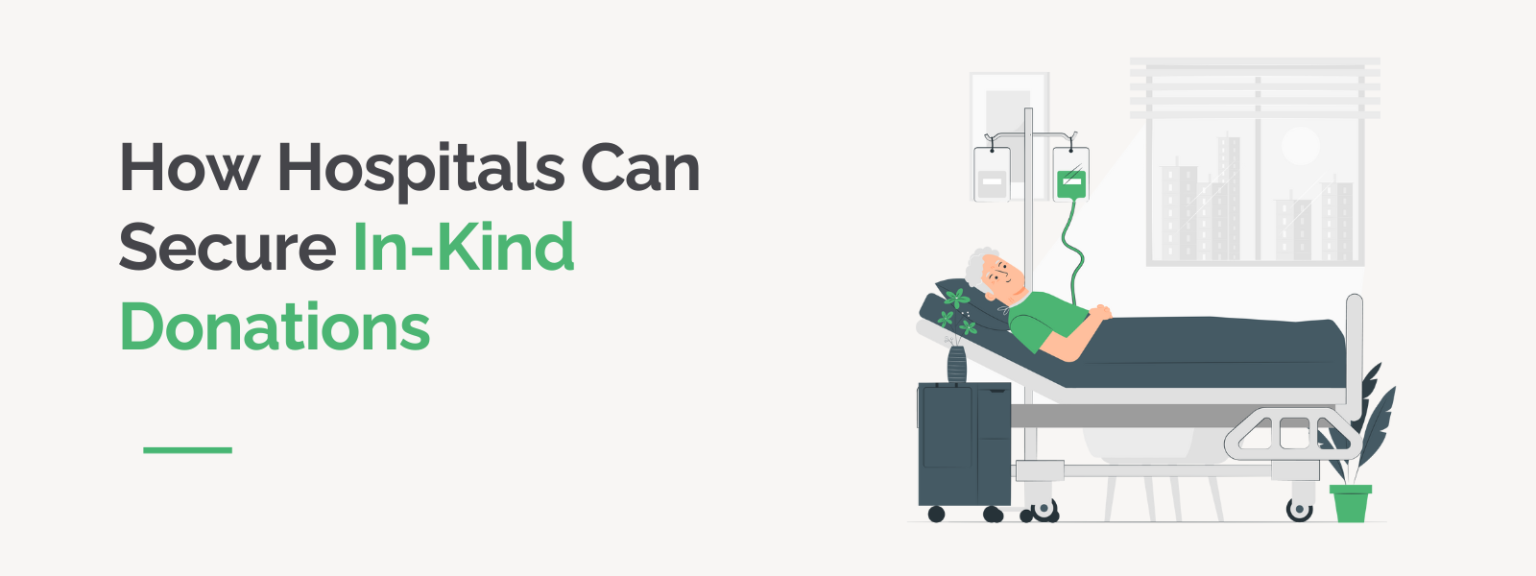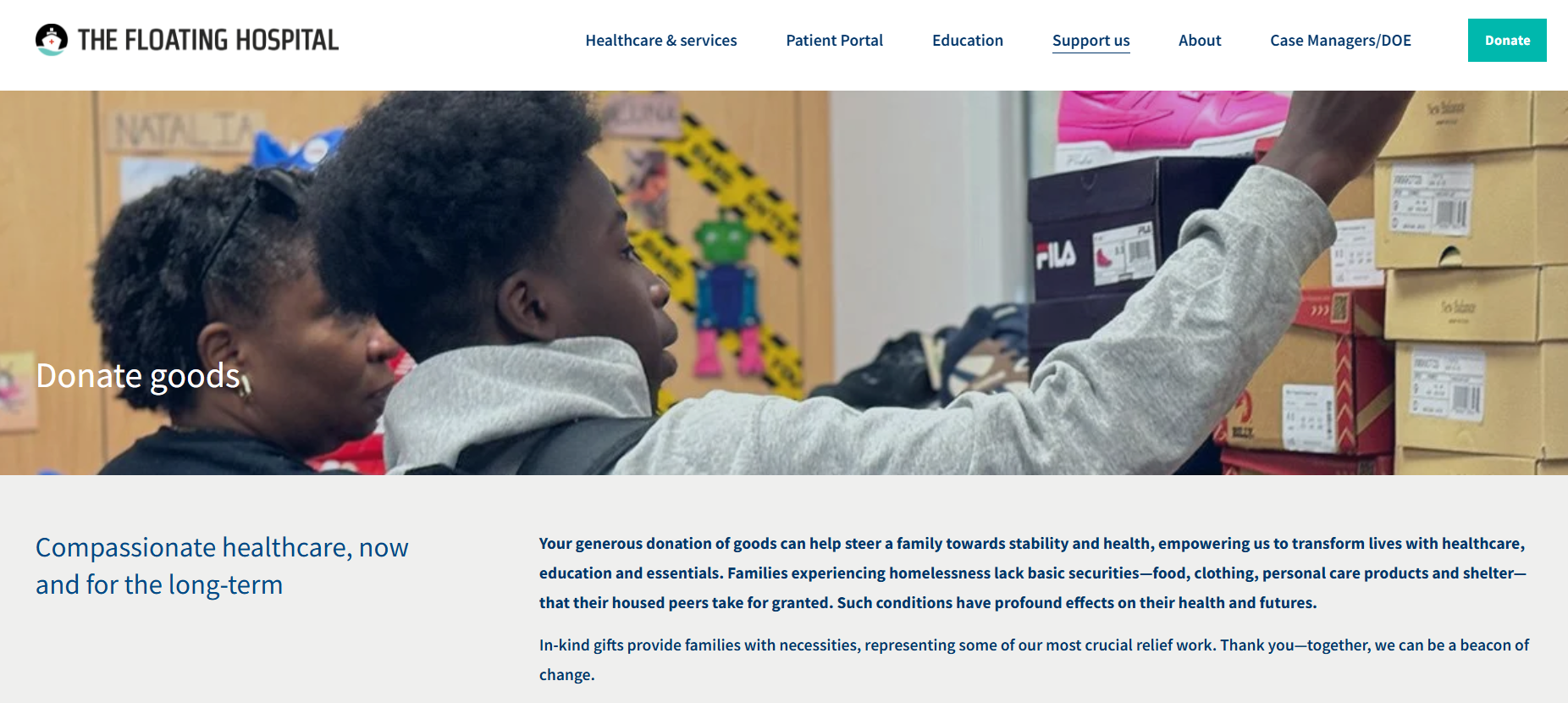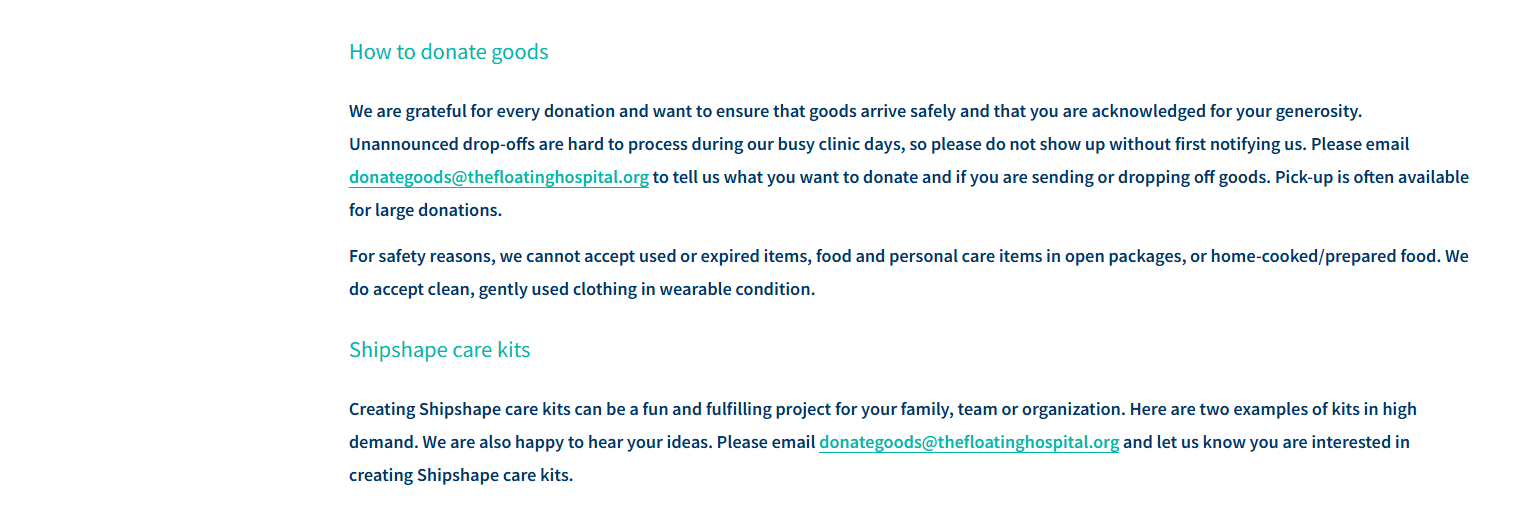How Hospitals Can Secure In-Kind Donations
Hospitals play a vital role in delivering healthcare services to communities, often operating under tight budget constraints. Securing in-kind donations can significantly enhance their capacity to provide quality care without solely relying on cash funding. In-kind donations refer to non-cash gifts such as goods, services, or expertise that directly support hospital operations and patient care.
Unlike traditional cash donations, in-kind contributions provide tangible resources that hospitals can immediately put to use. These donations can range from medical equipment and supplies to meals for staff and toys for pediatric patients. By leveraging in-kind support, hospitals can reduce operational costs, improve patient experiences, and allocate financial resources more strategically.
For nonprofit professionals working in hospital fundraising, understanding how to identify, request, and manage in-kind donations is essential. This article offers practical guidance tailored to hospitals, helping development directors and fundraising teams maximize the impact of these valuable contributions.
Table of Contents
- What Are In-Kind Donations for Hospitals?
- Types of In-Kind Donations for Hospitals
- Where Hospitals Should Look for In-Kind Support
- How Hospitals Should Make the In-Kind Donation Ask
- Tools and Resources to Help Hospitals Get Started
- Case Study: How the Floating Hospital Secures In-Kind Gifts
What Are In-Kind Donations for Hospitals?
In-kind donations are gifts of goods, services, or expertise provided to a nonprofit organization instead of cash. These donations can include physical items like equipment or supplies, professional services such as legal advice, or volunteer time. Across all nonprofit sectors, in-kind donations complement monetary gifts by addressing specific operational needs directly.
Unlike cash donations, which offer flexibility in how funds are used, in-kind donations provide targeted support that can immediately enhance program delivery or organizational capacity. For example, a donated piece of medical equipment can be put to use right away, whereas cash might first need to be allocated and spent.
In the context of hospitals, in-kind donations are particularly impactful. Hospitals require a wide range of specialized equipment, supplies, and services to maintain high standards of patient care. In-kind gifts can help fill gaps in resources, especially during times of increased demand or budget shortfalls.
Moreover, in-kind donations can improve patient comfort and staff morale. Donations such as toys for pediatric care or meals for medical teams contribute to a supportive environment that benefits everyone involved. For hospital fundraising professionals, cultivating in-kind support is a strategic way to enhance mission impact while conserving financial resources.
How In-Kind Donations Differ from Cash Gifts
While cash gifts provide flexibility, in-kind donations offer specificity. Hospitals can receive exactly what they need without expending funds to purchase those items or services. This direct support can accelerate program implementation and reduce administrative overhead.
Additionally, in-kind donations often come with opportunities for corporate partnerships and community engagement. Companies may be more inclined to donate goods or services that align with their expertise or product lines, creating mutually beneficial relationships.
Why In-Kind Donations Matter for Hospitals
Hospitals face unique challenges, including rapidly evolving technology needs, regulatory compliance, and the need to maintain sterile environments. In-kind donations help address these challenges by providing up-to-date equipment, essential supplies, and support services.
Furthermore, in-kind gifts can enhance patient experiences, especially in specialized areas like pediatric care, where toys and entertainment can ease anxiety. For hospital staff, donations such as meals or cleaning products contribute to a healthier and more efficient workplace.
Types of In-Kind Donations for Hospitals
Hospitals benefit from a diverse range of in-kind donations that support both clinical operations and patient well-being. Below are some specific examples of valuable in-kind gifts tailored to hospital needs.
Medical Equipment
Donations of medical equipment such as diagnostic machines, monitors, or surgical tools are critical. These items directly impact patient care quality and can be costly for hospitals to acquire independently. Receiving equipment donations helps hospitals stay current with medical technology and expand service capabilities.
Medical Supplies
Consumable supplies like gloves, syringes, bandages, and disinfectants are essential for daily hospital operations. In-kind donations of these items reduce recurring expenses and ensure that staff have the materials needed to maintain safety and hygiene standards.
Furniture
Hospital furniture, including beds, chairs, and waiting room seating, contributes to patient comfort and operational efficiency. Donated furniture can refresh patient rooms and common areas, creating a more welcoming environment without straining budgets.
Technology
Tablets and other digital devices support patient engagement, staff communication, and administrative tasks. Donated technology can facilitate telehealth services, electronic health records management, and educational programs for patients and families.
Meals for Teams
Providing meals for medical teams during long shifts boosts morale and supports staff well-being. Donations from local restaurants or food companies can help hospitals care for their caregivers, especially during busy or crisis periods.
Cleaning Products
Maintaining a sterile environment is paramount in hospitals. Donations of cleaning products such as disinfectants, wipes, and sanitizers help ensure infection control while reducing supply costs.
Toys for Pediatric Care
For pediatric wards, toys and games are invaluable for comforting young patients and reducing stress. Donations from companies specializing in children’s products can enhance the hospital experience for families.
Where Hospitals Should Look for In-Kind Support
Identifying potential sources of in-kind donations requires strategic research and relationship-building. Hospitals should focus on companies with corporate social responsibility (CSR) programs aligned with healthcare and community well-being.
Local businesses engaged in community impact initiatives are often eager to support hospitals in their area. Additionally, partnerships with industry-relevant manufacturers, retailers, and service providers can yield targeted donations that meet specific hospital needs.
Build-A-Bear
Build-A-Bear is known for donating toys and stuffed animals, which are perfect for pediatric care units. Their support aligns with hospitals’ goals to create comforting environments for young patients, helping reduce anxiety and promote healing.
Panera
Panera frequently donates meals and catering services, which can be used to support hospital staff during long shifts or special events. Their focus on community nourishment complements hospitals’ commitment to caregiver well-being.
Microsoft
Microsoft offers technology donations, including tablets, software, and cloud services. These resources help hospitals modernize operations, improve patient engagement, and streamline administrative workflows.
Pfizer
Pfizer provides medical supplies and educational materials as part of their healthcare philanthropy. Their donations support hospitals’ clinical programs and patient education efforts, enhancing overall care quality.
Johnson & Johnson
Johnson & Johnson donates a wide range of medical equipment and supplies. Their longstanding commitment to health aligns closely with hospital missions, making them a valuable partner for in-kind support.
How Hospitals Should Make the In-Kind Donation Ask
Making a thoughtful and strategic in-kind donation request is crucial for building lasting corporate partnerships. A well-crafted ask demonstrates professionalism, aligns with the donor’s values, and makes it easy for companies to say yes.
Here’s what you can do to further increase your chances of a positive response:
Personalize Your Outreach
Research each potential donor’s CSR priorities and tailor your message accordingly. Highlight shared values and past contributions to build rapport.
Be Specific About Needs
Detail exactly what items or services are needed and how they will benefit patients or staff. Specificity helps donors visualize their impact.
Communicate Donor Benefits
Outline how the company will gain from supporting your hospital, including recognition opportunities and community impact.
Offer Flexible Giving Options
Allow donors to choose from a number of different ways to contribute, increasing the chances of securing support.
Make It Easy to Give
Provide clear instructions and contact information to facilitate a smooth donation delivery and follow-up process. The fewer roadblocks, the better.
Tools and Resources to Help Hospitals Get Started
Securing in-kind donations can be complex without the right tools. Luckily, dedicated platforms like Double the Donation streamline the process by aggregating corporate giving programs in one accessible database.
Why? Many companies have formal in-kind donation programs with specific application processes. However, these opportunities are often scattered across websites and challenging to track manually. Using a centralized tool saves time and effort for hospital fundraising teams.
Not to mention, Double the Donation helps hospitals uncover companies whose CSR initiatives align with healthcare missions. Its comprehensive database provides direct links to application portals, eligibility criteria, and contact information, enabling nonprofits to organize and prioritize outreach efficiently.
Case Study: How the Floating Hospital Secures In-Kind Gifts
The Floating Hospital provides a compelling model for how healthcare institutions can strategically solicit physical goods to provide compassionate care for vulnerable populations. By maintaining a comprehensive “Donate Goods” section, the hospital transforms essential necessities into tools for clinical and social stability.
View the web page here: https://www.thefloatinghospital.org/donations-in-kind
This approach is particularly vital for hospitals serving families experiencing homelessness, where access to basic securities like clothing and personal care products is directly linked to long-term health outcomes.
Streamlining the Path to Compassionate Care
The Floating Hospital’s digital strategy focuses on removing the logistical friction often associated with donating physical items to a busy clinical environment. Their web portal emphasizes the importance of safety and coordination, ensuring that every gift—from diapers to dish soap—can be put to use immediately.
Key elements of their high-impact in-kind giving portal include:
- Targeted Needs Lists: The hospital categorizes items into specific buckets, such as “Baby and Toddler Items,” “Clothing for little kids, teens, and adults,” and “Household items”.
- Project-Based Giving: Supporters are invited to create “Shipshape care kits,” a fulfilling project for families or organizations that provides high-demand items in a ready-to-distribute format.
- Logistical Transparency: To maintain a safe environment, the hospital requires email notification before any items are dropped off and offers pickup services for particularly large corporate donations.
For a hospital, in-kind donations represent more than just physical supplies; they are “the gift of good health”. By soliciting specific items such as baby blankets, unexpired non-perishable food, and new household cleaning supplies, the institution ensures that families have the resources needed to transition to stability. This proactive stance helps the organization secure diverse resources (from footsie PJs to laundry detergent), ensuring they can meet the immediate, daily needs of thousands of children and families across New York City.
Wrapping Up & Additional Resources
Securing in-kind donations is a powerful strategy for hospitals to enhance patient care, support staff, and optimize resources. By identifying specific needs, researching aligned corporate partners, and making thoughtful donation requests, hospital fundraising teams can build meaningful, lasting relationships with donors.
Leveraging tools like Double the Donation simplifies the process, helping hospitals uncover and manage in-kind giving opportunities more effectively. Taking these first steps empowers hospitals to expand their support network and maximize mission impact through smarter fundraising strategies.
Unlock More Support with Double the Donation
Corporate sponsorships and in-kind donations are critical to the success of nonprofit events and programs, but sourcing the right partners can be time-consuming and overwhelming. Luckily, Double the Donation streamlines the entire process, helping your team find, secure, and manage corporate support with ease.
With our industry-leading corporate giving database, you can quickly identify companies that offer financial sponsorships, in-kind donations, and corporate grants, giving you a data-driven edge in building meaningful partnerships.
Discover how your hospital can raise more with corporate grants and in-kind gifts. Get a demo today!






